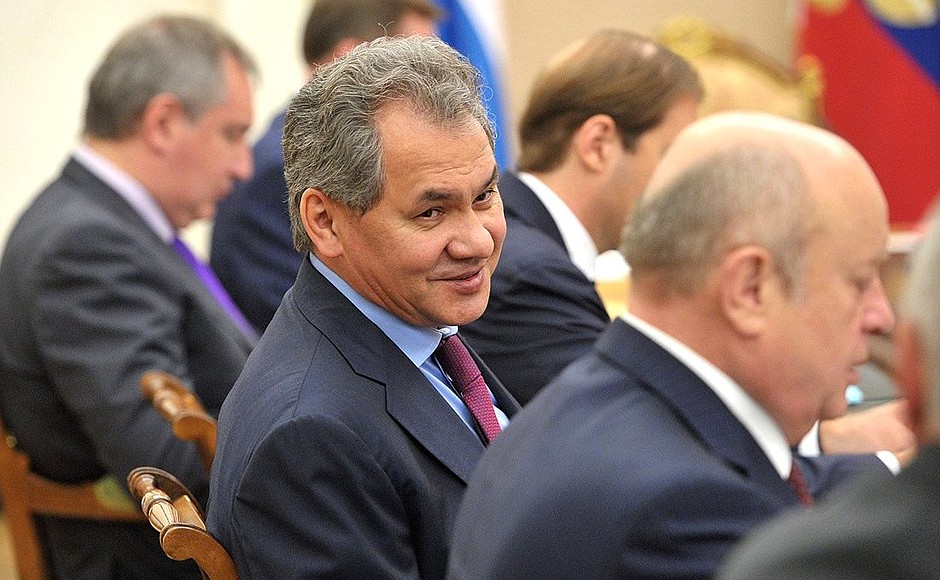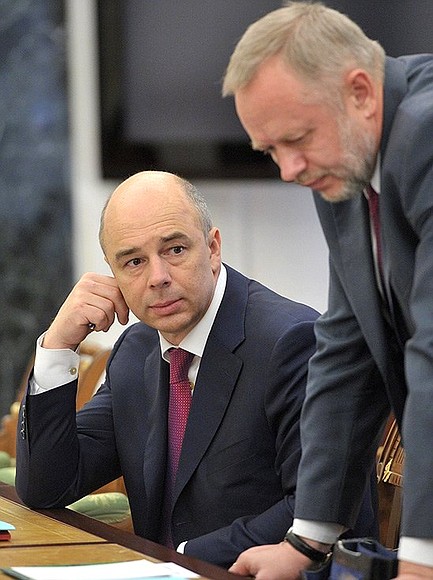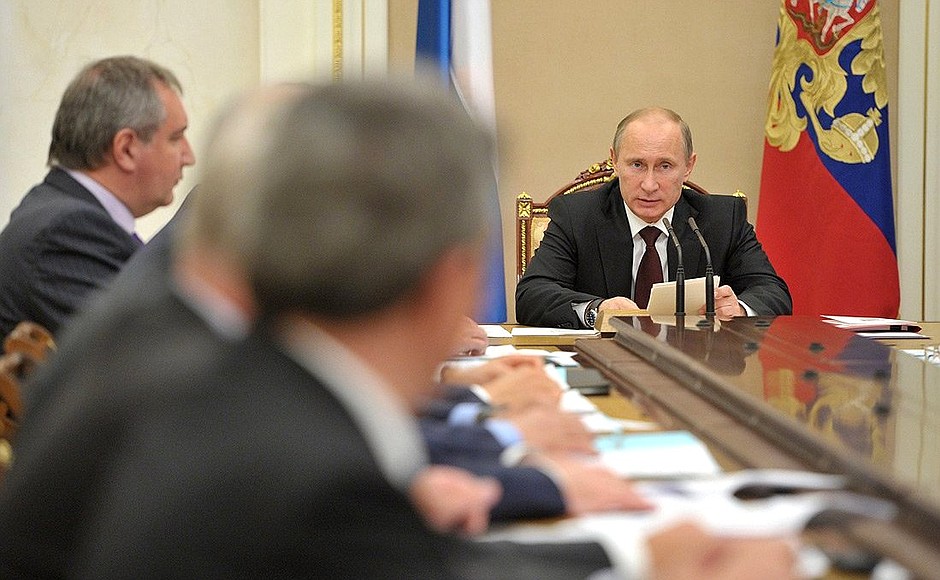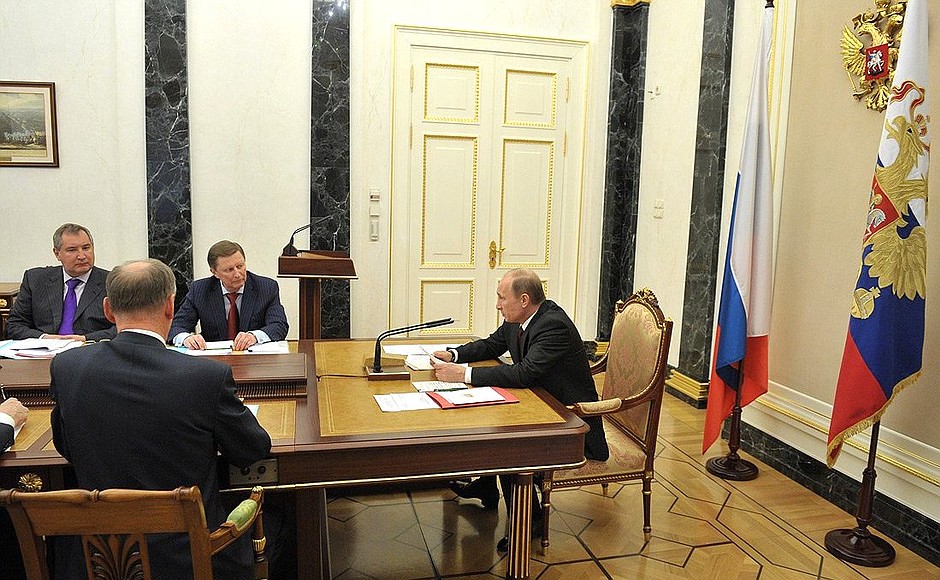* * *
Opening remarks at a meeting of the Commission for Military Technical Cooperation with Foreign Countries
President of Russia Vladimir Putin: Good afternoon colleagues.
At this meeting of the Commission for Military Technical Cooperation today we will discuss the results of the work so far this year and examine a number of current issues in military technical cooperation.
Before we start the discussion, I want to congratulate everyone working in this strategically important area. It was 60 years ago that the first state agency responsible for overseeing military technical cooperation with foreign countries was established, with the founding of the Chief Engineering Directorate at the Soviet Domestic and Foreign Trade Ministry on May 8, 1953.
I congratulate the sector veterans, scientists, designers, defence industry workers and government employees on this symbolic date. Your work has helped our country to establish its place firmly on the highly competitive global arms and military equipment markets and greatly expand our list of client countries and the range of goods we supply.
As for the first results for this year, they confirm once again that Russia’s military technical cooperation ties continue to grow and strengthen. Our exports of arms and military equipment were up by almost 15 percent compared to the same period last year.
We need to keep up this pace, and to do this we need a more active state policy in military technical cooperation, a policy focused on making our exports more competitive and gaining an even bigger share of the global market.
”The growing demand for our defence industry’s goods has overall significance for the entire economy as it creates new jobs and develops our scientific capability. This is why developing the defence industry remains a focus of attention for the state authorities.“
Let me say again that growing demand for our defence industry’s goods has overall significance for the entire economy as it creates new jobs throughout the whole production chain and develops our scientific capability. This is why developing the defence industry remains a focus of attention for the state authorities.
Our military and special equipment manufacturers receive comprehensive support and will continue to do so. They have received more than 27 billion roubles [more than $800 million] in federal budget subsidies alone over the last three years. Today, we will discuss how to raise the return on this state investment and how to promote our goods more effectively on the global markets.
We need to make good use not only of the tried and tested mechanisms already in place but also develop new forms of cooperation such as joint research and development projects, comprehensive programmes to re-equip foreign countries’ armies, and using modern financial instruments. The practice of supplying arms and military equipment as payment of our public debt has proved its worth over the last 30 years. We in turn could look into offering export credits in the military technical cooperation sector to reliable and responsible partners.
Other big players on the global arms market make wide use of this kind of instrument, all the more so as arms supply contracts open the way for service and maintenance and supply of spare parts as well. Such contracts would need to have reliable loan and financial support mechanisms of course. I propose that we discuss how to organise this kind of work on a more systematic basis.
Another item on our agenda today concerns supplies of Russian helicopters. We have quite a solid orders portfolio in this area, and a good base in place with around 9,000 Russian-made helicopters already in operation now in more than 100 different countries.
Our helicopters have earned the highest reputation and deservedly so. They beat most foreign equivalents in terms of technical and combat capabilities, reliability and straightforwardness of operation, and are more competitively priced too.
Russian-made helicopters have proved their use for both military and humanitarian missions, and are invaluable in even the most difficult and sometimes extreme climatic conditions and situations. Our NATO partners recognised how irreplaceable they are in Afghanistan, for example.
Our task is to maintain and steadily build up our aircraft manufacturers’ positions on the global markets. Above all, this requires us to work more closely with customers and develop maintenance and post-sales services for the aircraft we deliver.
Let’s discuss the concrete measures we can take in all of these areas.
<…>



